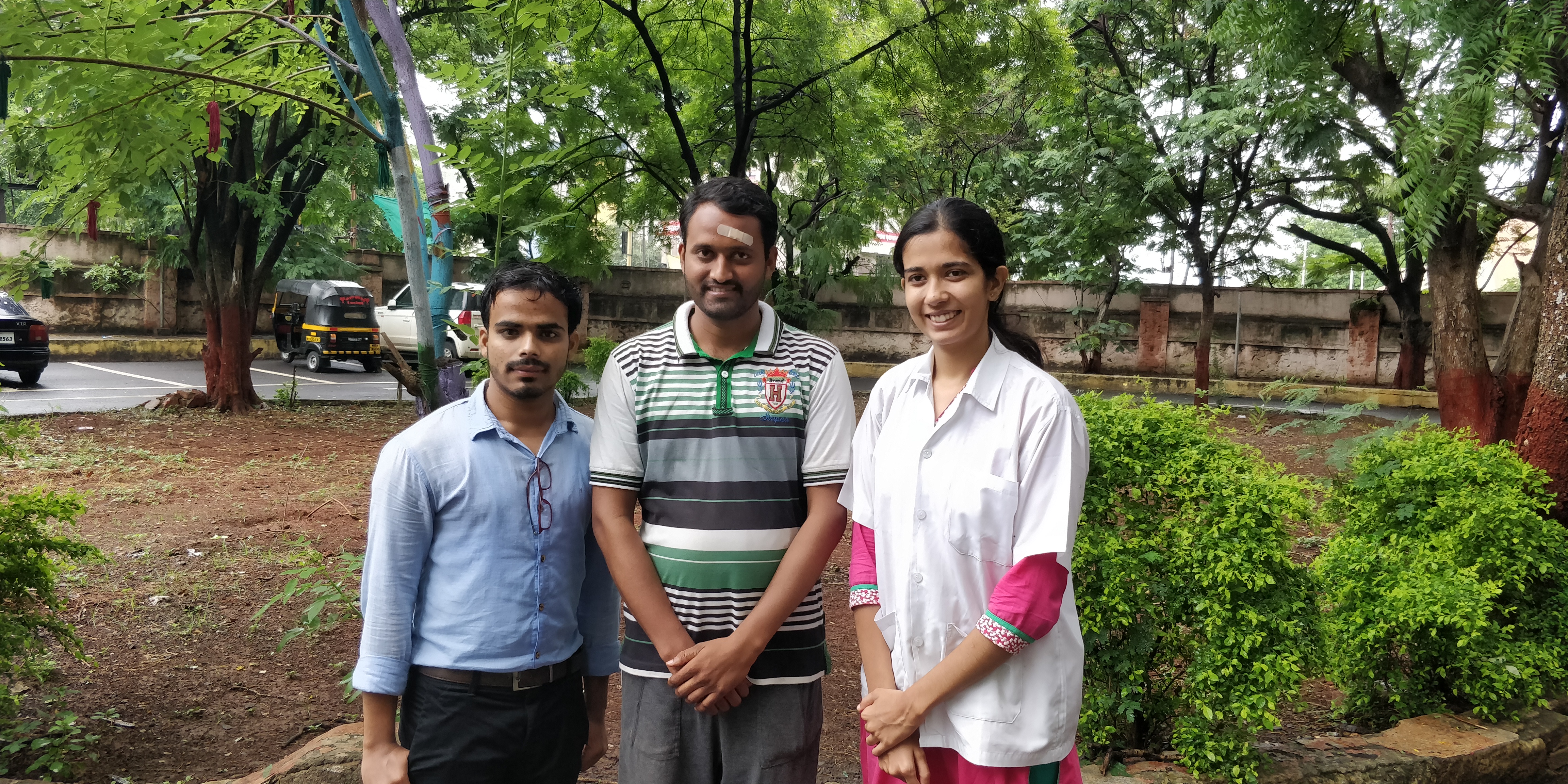
Very few people abide by the quote, “ Don’t
expect to see a change if you don’t make one”.
Sachin Asha Subhash is one of them, making a
change in the lives of hundreds of people and
making the world a better place to live iYourn.
Coming from a very humble background, Mr
Sachin is a man of indefatigable spirit, an Alumni
of Jawahar Navodaya Vidyalaya, who lives by
the value, “Come to learn and Go to serve”. A
student of law with BA in journalism, he also works
extensively on improving lives of rural women by
providing them with basic necessities such as
“sanitary napkins”.
1) Your name doesn’t fit the rule book. We would want
to know your thought behind the name Sachin Asha
Subhash.
I feel that not only our fathers, but our mothers
also deserve to be a part of their children’s identity.
So after my name I added my mother’s name
prior to my father’s name. I don’t add the surname
after my name as in India surnames are based on
casteism. I don’t believe in differentiation based on
caste and race.
2) What made you choose this path and get a idea of
developing the “ASHA PAD” ?
“I analyse myself on the basis of two criteria :
What is the need of the society?
What I can do to cater these needs?”
I cannot solve all the problems but I can try the
best I can try my best. That’s when “SAMAJBANDH
– Band janivanche, ritepan univanche” was
established, an initiative to bridge the ever
widening chasm between the privileged and
underprivileged. It began as an initiative called
“The Wall Of Humanity” with an idea to motivate
the privileged to hang their used clothes on the
streets of Pune. These clothes were then distributed
among the needy and tribal communities. While
doing this work we realised that women lacked
awareness regarding menstrual hygiene. Also, my
mother had to undergo hysterectomy at a very
young age due to the same reason. To address
this social stigma associated with menstruation,
I decided to develop ASHA PAD. We collected
samples of all the sanitary pads that were made
in India and after six months of careful study,
designed a pad which is like a handkerchief that
can be easily washed and dried in plain sight
without attracting undue attention.
3) How does the entire cycle of manufacturing and distribution of “Asha pad” function ?
The entire functioning of Samajbandh takes place in Pune. Used clothes are collected from
different parts of the city on the specific day from each locality. These clothes are then sorted on
the basis of matherial like cotton and hosiery that can be used for making Asha pad. These pads are
made by the women of the same locality who need employment. Then the process of distribution
starts. A seminar based on women’s health and menstrual hygiene is held and all the doubts of
the women are cleared. We not just provide sanitary pads for free but also teach the technique of
making pads using sewing machines in households.
“This will not only ensure proper usage of sanitary
napkins but will also provide women with employment and a source of livelihood by selling these
home made sanitary napkins.”
4) What problems did you encounter while doing the same?
Initially, we faced many problems as women were hesitant to come at the time of distribution. To
overcome this, I started taking sessions followed by women volunteers of the same village who were
associated with my team. The number was small initially but gradually the acceptance increased as
their doubts were cleared and we started getting a overwhelming response.
5) Along with Asha pad we would like to know about your other undertakings like Balniketan, Wall Of
Humanity etc
I wish to create a social enterprise about Samajbandh. Along with making pads, the women
which are associated with us also make cloth bags from old clothes collected that cannot be used
in making sanitary napkins. Whatever income is generated by selling the cloth bags, provides a
livelihood to these women and is also used for the understanding of our projects. We also rehabilitate
separated women, who often struggle to find their place in society, by providing them the basic
skills which would help them lead a respectable life in the society. “Balniketan” is a preschool with
minimal fees that provides quality education
to children. Whatever fees is collected is used
for undertakings of Samajbandh. We also
work against social evils like the dowry system
and also work for the prohibition of alcohol. I
also plan on organising a national level essay
and elocution competition for school going
children, so that the youth of India realises
their responsibility as the citizen of this country.
6) Ten years from now, what change do you wish
to see which will render the basic agenda of this
project fulfilled?
My main motive, is that as many women as
possible should make use of sanitary napkins.
To fulfill this the women of Melghat, Ratnagiri
and Palghar have started their own units for the development and distribution of sanitary napkins. My
team of Samajbandh, will help achieve this target
7) Lastly what message would you like to give to the youth of today?
I recall an incidence of my college days. In the areas around my college, little children used
to beg. I decided to do something and came up with the idea of teaching them in my free time.
“Every evening, I taught two small children and gradually we even started a school for them. I wish to
convey that as citizens of India we have certain duties.”
The youth can help create a big difference,
by small acts like helping the needy or teaching the underprivileged. Only the spirit of selflessness is
required. I am also launching a venture in August for the students who wish to work with Samajbandh
called “JEEVANSHALA” by means of which they will be able to teach these children.
It is people like him, that are the beacon of light in our society.
– Interviewed by Rohit Bhoir and Esha Paliwal
VMGMC Solapur
